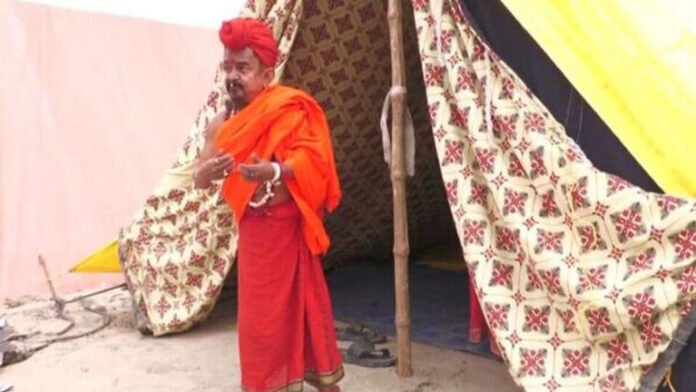As the world gears up for the Maha Kumbh Mela 2025 in Prayagraj, where millions of devotees will take a holy dip in the sacred waters of the Ganga, one ascetic’s story has captured widespread attention. Gangapuri Maharaj, popularly known as Chhotu Baba from Assam, stands out not for his elaborate rituals or spiritual sermons but for his unique vow of not bathing for the past 32 years.
This eccentric yet deeply symbolic choice has intrigued many, drawing both devotees and skeptics to his small encampment at the Mela. But why would someone renounce such a fundamental act of hygiene? In his own words, the answer lies in his devotion, protest, and spiritual philosophy.
The Unusual Vow
Gangapuri Maharaj, now in his early 60s, has been a sanyasi (ascetic) for most of his life. According to the hermit, his decision to abandon bathing dates back to 1993 when he took a solemn vow of renunciation. Speaking to reporters at the Mela, Maharaj explained, “Bathing is a purification of the body, but true purity comes from within. I vowed to renounce this worldly act to remind myself and others of the deeper essence of life.”
Interestingly, Maharaj does not view his vow as a rejection of cleanliness but as a higher form of self-discipline. “This body is temporary, but the soul is eternal. My focus is on purifying my soul, not my body,” he says. His belief has resonated with some and baffled others, sparking debates about the intersection of spirituality, symbolism, and personal hygiene.
A Protest Against Materialism
For Maharaj, the vow is also a silent protest against modern society’s obsession with external appearances and materialism. “We live in a world that prioritizes the superficial—how we look, what we wear, how we present ourselves. But these are distractions. The real journey is inward,” he says.
Maharaj’s decision is a critique of consumerist culture, which he believes has eroded humanity’s spiritual essence. By shunning a basic ritual like bathing, he aims to challenge societal norms and provoke introspection. “If my unwashed body can make people think about their spiritual emptiness, then my vow has served its purpose,” he adds.
Devotees and Critics
Gangapuri Maharaj’s camp at the Maha Kumbh Mela has become a popular destination for curious visitors. Devotees throng to seek his blessings and hear his teachings, often leaving inspired by his ascetic lifestyle. “He has sacrificed so much to live a life of purity. His example reminds us to look beyond the mundane,” says Anita Devi, a devotee from Bihar.
However, not everyone is convinced. Critics argue that Maharaj’s vow is extreme and unnecessary, questioning the spiritual merit of such practices. Some even express concerns about public health and hygiene, especially in a crowded event like the Kumbh Mela. To this, Maharaj responds with his characteristic calm: “True spirituality often defies logic. Those who do not understand it will always question it.”
The Maha Kumbh Mela Connection
The Maha Kumbh Mela, held every 12 years, is one of the largest religious gatherings in the world. Devotees believe that taking a dip in the Ganga during this auspicious time washes away sins and brings spiritual liberation. For Gangapuri Maharaj, the Mela represents an opportunity to spread his message of inner purification.
Interestingly, despite his vow, Maharaj will take a symbolic dip in the Ganga on the most auspicious day of the Mela. “The Ganga is not just a river; it is a divine force. I will immerse myself not to cleanse my body but to honor its spiritual essence,” he explains.
Spiritual Lessons from an Unlikely Teacher
Gangapuri Maharaj’s story is a testament to the diversity of spiritual practices that define Indian ascetic traditions. While his vow may seem radical, it reflects a deeper philosophical question: What does true purification mean? For Maharaj, the answer lies in detachment from physicality and a focus on the soul’s journey.
As the Maha Kumbh Mela continues, Maharaj’s camp is sure to remain a hub of intrigue and spiritual discourse. Whether one agrees with his practices or not, his story serves as a reminder of the many ways in which faith and devotion manifest.
Conclusion
The Maha Kumbh Mela 2025 is not just a gathering of pilgrims but a confluence of diverse spiritual ideologies. Gangapuri Maharaj’s 32-year vow of not bathing may be unconventional, but it underscores the individuality of spiritual paths. In his own words, “Cleanliness of the body is fleeting; the cleanliness of the soul is eternal. Seek the eternal, and you shall find peace.”


